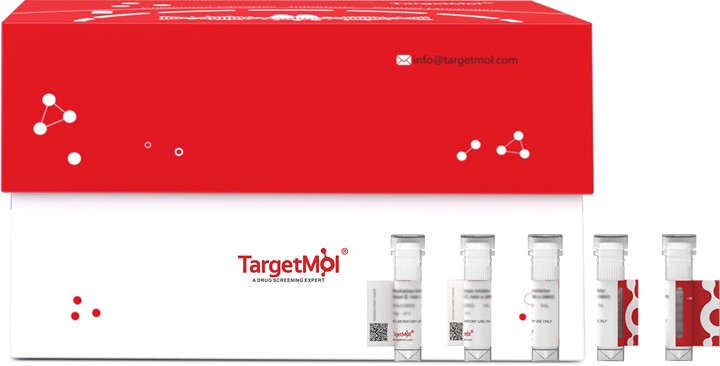Shopping Cart
- Remove All
 Your shopping cart is currently empty
Your shopping cart is currently empty

TRIM72 Protein, Mouse, Recombinant (His) is expressed in yeast with N-6xHis tag. The predicted molecular weight is 53.9 kDa and the accession number is Q1XH17.

| Pack Size | Price | Availability | Quantity |
|---|---|---|---|
| 20 μg | $397 | 20 days | |
| 100 μg | $845 | 20 days | |
| 1 mg | $2,970 | 20 days |
| Biological Activity | Activity has not been tested. It is theoretically active, but we cannot guarantee it. If you require protein activity, we recommend choosing the eukaryotic expression version first. |
| Description | TRIM72 Protein, Mouse, Recombinant (His) is expressed in yeast with N-6xHis tag. The predicted molecular weight is 53.9 kDa and the accession number is Q1XH17. |
| Species | Mouse |
| Expression System | P. pastoris (Yeast) |
| Tag | N-6xHis |
| Accession Number | Q1XH17 |
| Synonyms | Tripartite motif-containing protein 72,Trim72,Mitsugumin-53 |
| Amino Acid | MSAAPGLLRQELSCPLCLQLFDAPVTAECGHSFCRACLIRVAGEPAADGTVACPCCQAPTRPQALSTNLQLSRLVEGLAQVPQGHCEEHLDPLSIYCEQDRTLVCGVCASLGSHRGHRLLPAAEAQARLKTQLPQQKMQLQEACMRKEKTVAVLEHQLVEVEETVRQFRGAVGEQLGKMRMFLAALESSLDREAERVRGDAGVALRRELSSLNSYLEQLRQMEKVLEEVADKPQTEFLMKFCLVTSRLQKILSESPPPARLDIQLPVISDDFKFQVWKKMFRALMPALEELTFDPSSAHPSLVVSSSGRRVECSDQKAPPAGEDTRQFDKAVAVVAQQLLSQGEHYWEVEVGDKPRWALGVMAADASRRGRLHAVPSQGLWLLGLRDGKILEAHVEAKEPRALRTPERPPARIGLYLSFADGVLAFYDASNPDVLTPIFSFHERLPGPVYPIFDVCWHDKGKNAQPLLLVGPEQEQA |
| Construction | 1-477 aa |
| Protein Purity | > 85% as determined by SDS-PAGE. |
| Molecular Weight | 53.9 kDa (predicted) |
| Endotoxin | < 1.0 EU/μg of the protein as determined by the LAL method. |
| Formulation | If the delivery form is liquid, the default storage buffer is Tris/PBS-based buffer, 5%-50% glycerol. If the delivery form is lyophilized powder, the buffer before lyophilization is Tris/PBS-based buffer, 6% Trehalose, pH 8.0. |
| Reconstitution | Reconstitute the lyophilized protein in sterile deionized water. The product concentration should not be less than 100 μg/mL. Before opening, centrifuge the tube to collect powder at the bottom. After adding the reconstitution buffer, avoid vortexing or pipetting for mixing. |
| Stability & Storage | Lyophilized powders can be stably stored for over 12 months, while liquid products can be stored for 6-12 months at -80°C. For reconstituted protein solutions, the solution can be stored at -20°C to -80°C for at least 3 months. Please avoid multiple freeze-thaw cycles and store products in aliquots. |
| Shipping | In general, Lyophilized powders are shipping with blue ice. Solutions are shipping with dry ice. |
| Research Background | Muscle-specific protein that plays a central role in cell membrane repair by nucleating the assembly of the repair machinery at injury sites. Specifically binds phosphatidylserine. Acts as a sensor of oxidation: upon membrane damage, entry of extracellular oxidative environment results in disulfide bond formation and homooligomerization at the injury site. This oligomerization acts as a nucleation site for recruitment of TRIM72-containing vesicles to the injury site, leading to membrane patch formation. Probably acts upstream of the Ca(2+)-dependent membrane resealing process. Required for transport of DYSF to sites of cell injury during repair patch formation. Regulates membrane budding and exocytosis. May be involved in the regulation of the mobility of KCNB1-containing endocytic vesicles. |

Copyright © 2015-2025 TargetMol Chemicals Inc. All Rights Reserved.